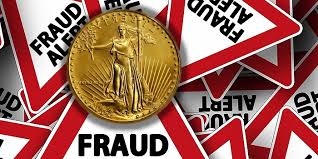Deutsche Bank FCPA and Fraud “Spoofing” Settlement: A Review of Deutsche Bank Conduct (Part II of II)

Deutsche Bank’s ethics and compliance function faces numerous challenges. Deutsche Bank has a storied record of scandals, government enforcement actions and failures to abide by prior deferred prosecution agreements (DPAs). When you review these matters, Deutsche Bank’s track record reflects serious culture and control deficiencies, including participation of high-level executives in bribery schemes. Deutsche Bank’s continuing legal and compliance failures are likely to continue unless and until there is a serious change in management and a new message of ethics and compliance.
Deutsche Bank’s bribery scheme involving Business Development Consultants (BDCs) represents a classic third-party bribery scheme as a means to funnel illegal bribes to government officials. BDCs were reviewed and approved by high-level management at the bank.
Deutsche Bank agreed to facts outlining the use of four BDCs (three in DOJ and a fourth in SEC settlement) to make bribery payments in exchange for the award of lucrative contracts.
In 2009, Deutsche Bank’s internal audit group issued a report identifying risk indicators and highlighting concerns relating to use of BDCs and lack of oversight and documentation relating to their activities. The report made numerous recommendations to remediate these deficiencies. The report also was distributed to high-level management, including the Management Board. Deutsche Bank failed to implement any of the changes.
Two years later, Deutsche Bank’s internal audit group conducted another review of the BDCs, and identified numerous control failures relating to BDCs, including deficiencies in due diligence of BDCs, failure to document and mitigate anti-corruption risks raised by multiple BDCs. Again, the report as shared with senior management and no changes were implemented to the bank’s controls.
Abu Dhabi BDC
In approximately 2010, the bank contracted with a BDC in Abu Dhabi to obtain business with an investment vehicle indirectly owned by a Abu Dhabi state-owned enterprise, which was known as Project “X.” Several high-ranking regional officers at the bank knew that the BDC lacked qualifications as a BDC and had a family relationship with the client decisionmaker. In other words, the BDC was acting as proxy for the client decisionmaker to funnel payments to secure the valuable Project X contract.

The hiring of the BDC was reviewed by the global markets risk assessment committee and ultimately approved by high-level executives, despite numerous indicators of corruption and intent to pay bribes to secure Project X. Deutsche Bank’s due diligence did not even include the name of the BDC or his/her biographical information. Deutsche Bank paid the Abu Dhabi BDC over $3 million in fees without any documentation or invoices to justify the payments and secured the Project X contract. Aside from the bribery payments of cash, an indirectly involved official from the Abu Dhabi pressured Deutsche bank to provide financing for the purchase of an expensive yacht.
Saudi Arabia BDC
In approximately 2011, Deutsche Bank entered into a BDC with a special purpose vehicle beneficially owned by the wife whose husband who managed the office and investments of a Saudi Royal Family in order to obtain valuable banking business with the Royal Family. The bank made bribery payments of over $1 million to the Saudi BDC to secure valuable contracts for millions of dollars in investments for Royal Family fundsDeutsche Bank approved the BDC engagement despite the relationship between the Saudi BDC and Saudi official in order to funnel bribery payments to ensure continued business contracts with the Saudi official. In approving these payments, Deutsche bank employees were aware that the “client and [the Saudi BDC] are intimately linked” and any failure to pay bribes would result in a loss of business from the client.
To conceal the bribery payments to the Saudi BDC, Deutsche bank assisted the Saudi BDC to establish a shell company in the British Virgin Islands and opened an account at Deutsche Bank for the BVI company. In addition to the bribery payments, the BDC assisted a foreign official connected to the Saudi official to secure a loan to purchase a house in France.
Italy BDC
Between 2007 to 2016, Deutsche Bank maintained a BDC who was a regional tax judge in Italy to bring clients to Deutsche Bank, and paid the Italian BDC a total of over $865 thousand. The BDC submitted false invoices, which were known by Deutsche Bank officials to be false, and received multiple payments, many of which were duplicative and included no documentation or justification. In several cases, Deutsche Bank officials intervened to secure payment of improper or inadequate invoices, and made false representations concerning the services being provided.
China BDC
Deutsche Bank retained a BDC to help establish a clean energy investment fund with a Chinese government entity. The BDC claimed he was a senior advisor to the regional Chinese Government with which the bank sought to establish the investment fund. Deutsche Bank also was aware that the BDC was “a close friend of” a foreign government official whose approval was needed for the new investment fund. That same government official required that Deutsche Bank work through the BDC to establish the investment fund. Despite all of these issues, Deutsche bank retained the BDC without conducting the required due diligence.
Between April 2011 and May 2013, Deutsche Bank paid the BDC at least $1.6 million, including payments for services provided before he was engaged. The BDC submitted invoices for gifts and entertainment provided to foreign officials that were reimbursed with adequate review or advance approval by Compliance as required under the bank’s policies. Furthermore, Deutsche Bank did not fully document the BDC’s services and paid him without appropriate documentation. In addition to these payments, the BDC was given a partnership interest in the investment fund that required little to no capital payments and gave him a large profit share.
The Commodities Fraud Case

Five traders located in New York, Singapore and London were identified in the Statement of Facts. Two of the traders were convicted in September 2020 were convicted of wire fraud after a jury trial. A third trader from Singapore pleaded guilty on June 1, 2017 to conspiracy to commit wire fraud and spoofing. A fourth trader was charged by indictment in November 2020 and awaits trial on fraud and conspiracy charges.
Deutsche Bank through the five traders deceived other precious metals market participants by creating and communicating false and misleading information regarding supply or demand in order to induce other market participants into trading precious metals futures contracts at prices, quantities and times they would not have otherwise in order to make money and avoid losses.
The traders placed visible orders for precious metals futures contracts on one side of the market that they intended to cancel before execution in order to deceive other traders. The traders acted with intent to create and communicate false information concerning their orders and intent to execute. This false and misleading information caused other traders to buy or sell futures contracts to cause other traders to react and manipulate and move commodity futures prices.















